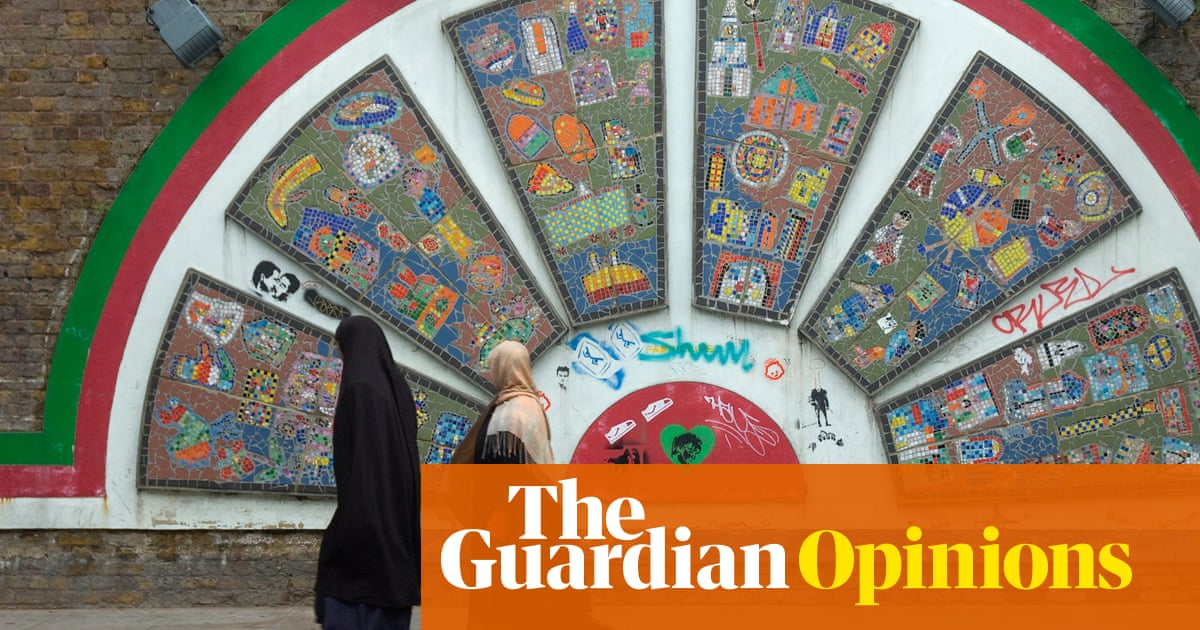Here we are again, debating the right of Muslim women to wear what they want. Last week, the Reform UK MP Sarah Pochin asked the prime minister, Keir Starmer, if he planned to follow other European countries andprohibit burqas.
Then the leader of the opposition, Kemi Badenoch, called for bosses to be able toban the burqa in the workplace. Following the example of the former Labour minister Jack Straw, who in 2006sparked the first burqa debateby asking constituents at his surgeries to remove their face coverings, she stated that she does not see constituents at her surgeries if they have their faces covered, “whether it’s a burqa or a balaclava”.
These comments from politicians hoping to appease rightwing voters have real repercussions for the safety of Muslim women like me. Muslim women, especially those who wear coverings ranging from the headscarf known as the hijab to the full body and face covering known as the burqa, have become a symbol in UK politics of migration and integration. They – or perhaps the perceived oppressive men in their lives – are outsiders who refuse to live by British values. When politicians call to ban the burqa, they position themselves as defenders of a way of life under threat from outside forces.
The timing of this cannot be ignored.Reform, which triumphed at the recent local elections, warns in its manifesto that “unchecked migration has pushed Britain to breaking point”. The Conservatives, keen to claw back any defecting voters, have positioned themselves as equally tough on immigration and integration.
When our national leaders parrot catchy soundbites such as “ban the burqa”, what they are really doing is normalising Islamophobia by making it part of mainstream political conversations. Islamophobic incidentsrose by 375%in the week after Boris Johnson called veiled Muslim women “letterboxes” in 2018.
As a visibly Muslim woman, I have never felt as afraid as I do right now. Last summer’s far-right riots targeting mosques and calling for Muslims to be taken off the streets are etched into my mind. I was born in this country, it’s my home, yet I can’t shake a feeling of unease.
The irony of this debacle is not lost on me. Last time I checked, Britain prided itself in not being the sort of country that told women how to dress. States that do dictate women’s clothing (see: Iran) are vilified as misogynistic and ultra-controlling: the antithesis of the enlightened, liberal west. Why, then, is it OK for the government or corporations in Britain to interfere with the autonomy of women who happen to be Muslim?
Of course, some will say that face coverings are inherently misogynistic, and so banning them is about protecting Muslim women. But why should politicians get to decide what is oppressive and what isn’t, without ever really consulting us? It is disingenuous to pretend that Muslim women are uniquely prone to victimhood. Can we truthfully say anything about the way women are expected to live our lives isn’t rooted in patriarchy? Whether it’s the bikini or the push-up bra, miniskirts or high heels, as women we are conditioned to shape our identity under the watchful eye of the male gaze.
But I’m sure you’ve heard all of this before, because yet again, here we are: Muslim women defending their right to choose how they exist in British society. What is really being obscured are more pressing issues: inequality, a lack of affordable housing, crumbling public services, a struggling NHS. This was as true in the early 2000s as it is now.
Nadeine Asbali is a secondary school teacher in London and the author of Veiled Threat: On Being Visibly Muslim in Britain
